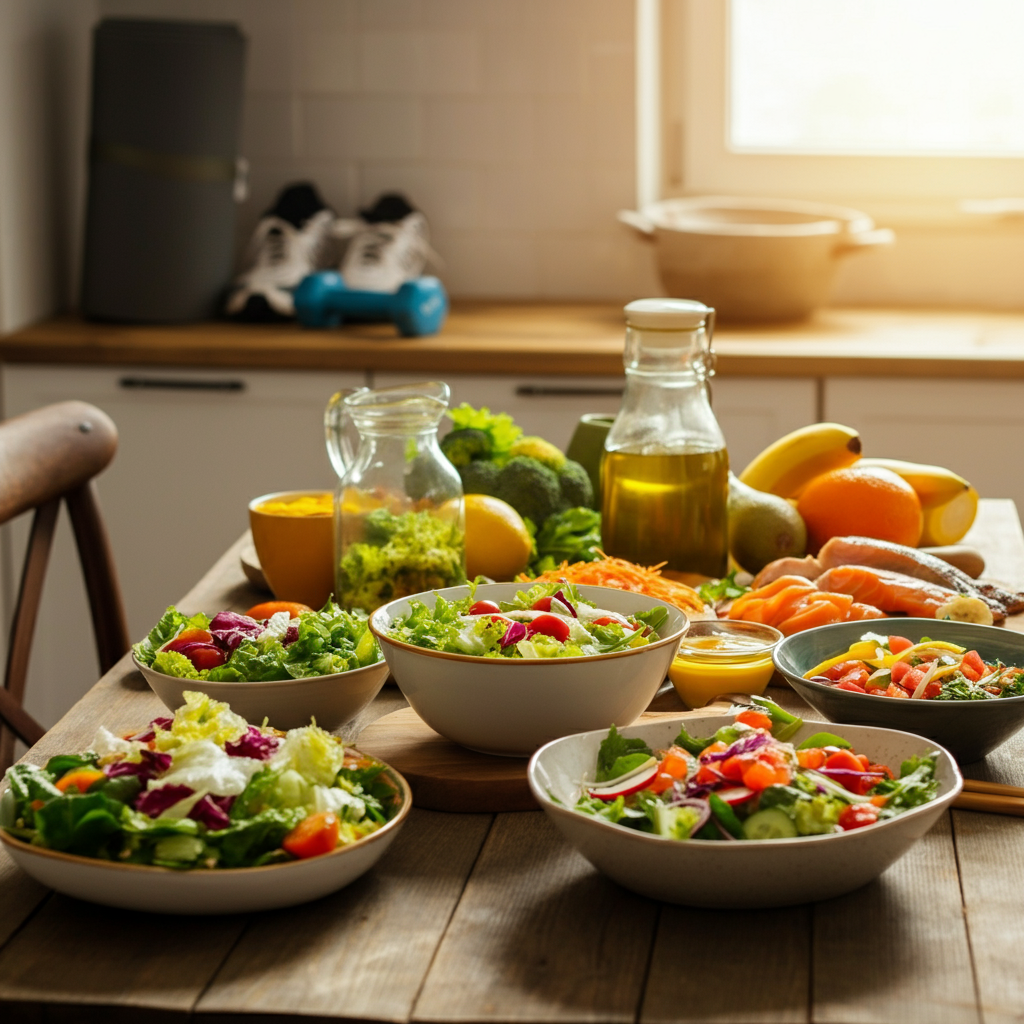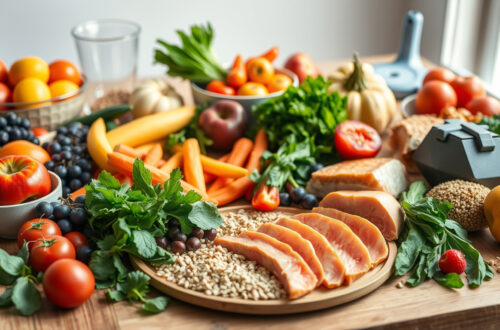Cutting out sugar in your food may seem daunting but it’s actually one of the most efficient methods to see tangible weight loss results. The no-sugar diet can reduce empty calories while also maintaining blood sugar levels, offering an alternative that is healthier than eating regimens that are based on crash. If you’re looking to shed weight, boost energy and overall well-being, this seven-day no-sugar diet program is an ideal starting point. Alongside meals, we’ll also include exercises suggestions and tips to stay on track, and methods to tackle common issues.
At the end of this article, you’ll not just have a clear and precise meal plan but also a better understanding of how to sustain your results over the long term.
What are the benefits of the No Sugar Diet?
Consuming too much sugar has been associated with the increase of weight, an increased risk of developing chronic illnesses as well as fluctuations within energy levels. If you remove all sugars from the diet you permit your body to use stored fat to generate energy instead of relying on sweet foods. The benefits of a sugar-free diet include:

- weight loss The reduction in consumption of sugar significantly reduces on calories in excess and also reduces storage of fat.
- Increased energy levels Blood sugar levels that are stable ensure an energy level that is constant throughout the day without any crashes.
- Better metabolic health: A low sugar diet increases the sensitivity of insulin, which reduces the risk of developing diabetes and other metabolic diseases.
Now, let’s look at the strategy!
7-Day No Sugar Diet Plan
Day 1.
Breakfast
- Scrambled eggs topped with sauteed spinach
- A few almonds
Lunch
- Grilled chicken salad served with mixed greens, cucumbers, and lemon olive oil dressing
Snack
- Celery sticks topped with almond butter (unsweetened)
Dinner
- Grilled salmon, cooked broccoli and the quinoa
Day 2
Breakfast
- Greek yogurt (unsweetened) served with fresh strawberries and chia seeds
Lunch
- Turkey lettuce wraps topped with avocado slices
Snack
- A boiled egg, an assortment of sunflower seeds
Dinner
- Baked cod, sweet potatoes and zucchini that have been roasted
Day 3
Breakfast
- Two eggs omelette filled with mushrooms and tomatoes
- Half an avocado with a side
Lunch
- Quinoa and Kale salads served with grilled shrimp and drizzles of olive oil
Snack
- A small apple containing 1 tablespoon of unsweetened peanut butter.
Dinner
- Grilled chicken breasts with asparagus and cooked cauliflower
Day 4
Breakfast
- Smoothies made of cucumber, spinach and almond milk that is unsweetened, as well as a handful of fruit
Lunch
- Zucchini pasta with pesto, grilled turkey and
Snack
- Cucumber sticks and cheese slices
Dinner
- Grilled tofu topped with sauteed bell peppers, wild rice.
Day 5
Breakfast
- Poached eggs on sauteed kale, drizzled with a splash of olive oil
Lunch
- Soup made of lentils and vegetables with an arugula salad
Snack
- An assortment of walnuts and an orange
Dinner
- The beef patty is grass-fed and comes with roast Brussels the sprouts, sweet potato wedges
Day 6
Breakfast
- Steel-cut Oats (unsweetened) mixed with almonds chopped, and a sprinkling of cinnamon
Lunch
- Grilled salmon salad, with avocado, spinach with olive oil dressing
Snack
- Cucumbers sliced with Hummus
Dinner
- Herb-roasted thighs of chicken with cooked green beans and quinoa.
7th Day
Breakfast
- Hard-boiled eggs accompanied by a small slice of avocado, and cherry tomatoes
Lunch
- Grilled tuna steak served over sauteed kale and wild rice.
Snack
- Celery sticks topped with Guacamole
Dinner
- Baked turkey meatballs, topped with roasting zucchini and carrots
Workout Recommendations
When following the no-sugar diet, mixing exercises is crucial to get quicker results. This is what to do:
- Cardio Exercises (20-30 minute every 4 days) activities like jogging, cycling or walking briskly help to shed extra calories.
- Strength training (3 days per week) Include resistance bands, weights or bodyweight exercises to tone your muscles and increase your metabolism.
- Yoga, or stretching (2-3 often per week) Helps lower the levels of cortisol (stress hormone) and aid in recovery.
Tips to be Successful
The idea of a diet without sugar can be intimidating However, the right approach can help you stay in the right direction:
- Check labels carefully Look for hidden sugars that are found in processed foods and beverages. Be aware of terms such as maltose, high-fructose corn syrup and sucrose.
- Meal Prepare Ahead Making meals ahead of time ensures that you have healthy options available, and you’ll be able to avoid the temptation.
- Stay hydrated Drink plenty of fluids to curb cravings for sugar. A few slices of cucumber or lemon will keep your water hydrated.
- Select Natural Sweeteners (in moderate amounts) If you must choose sweeteners, consider monk or stevia instead of sugar.
Potential challenges and their solutions
- Needs to Eat Sugary Snacks
Solution: Keep healthy snacks like nuts, seeds, or veggie sticks nearby. Take a cup of herbal tea to keep your taste senses from craving sweets.
- Feeling depleted for Energy
Answer Your body is adapting to the absence of spikes in sugar. It’s not permanent! Consider adding more complex carbs like sweet potatoes and quinoa to help you maintain energy.
- Social Pressure
Solutions Solution: Be honest about your plans with family and friends. Offer alternatives to dining out, such as a meeting to take walks.
- Limited availability of Food Products that are Approved Options
Solutions Be sure to have a snack that you can carry around like an egg that has been boiled, a protein bar or unsweetened nut mix while on the move.
Long-Term Benefits, and How to maintain the results
Moving to a no-sugar diet is not just an approach to weight loss for a short time it’s an overhaul of lifestyle. Through a steady reduction in sugar intake:
- It will prevent weight gain and keep a steady weight.
- Health benefits over the long term include improved heart health, a lower the risk of insulin resistance and improved mental focus.
- You’ll be able to appreciate more for the natural flavors of whole foods, and less reliant on processed food alternatives.
To continue to see success, gradually return to the natural sugars found in whole fruits, while avoiding processed sugars from your daily routine. This balance will allow you to keep your weight loss going and enhance the overall quality of your life.




